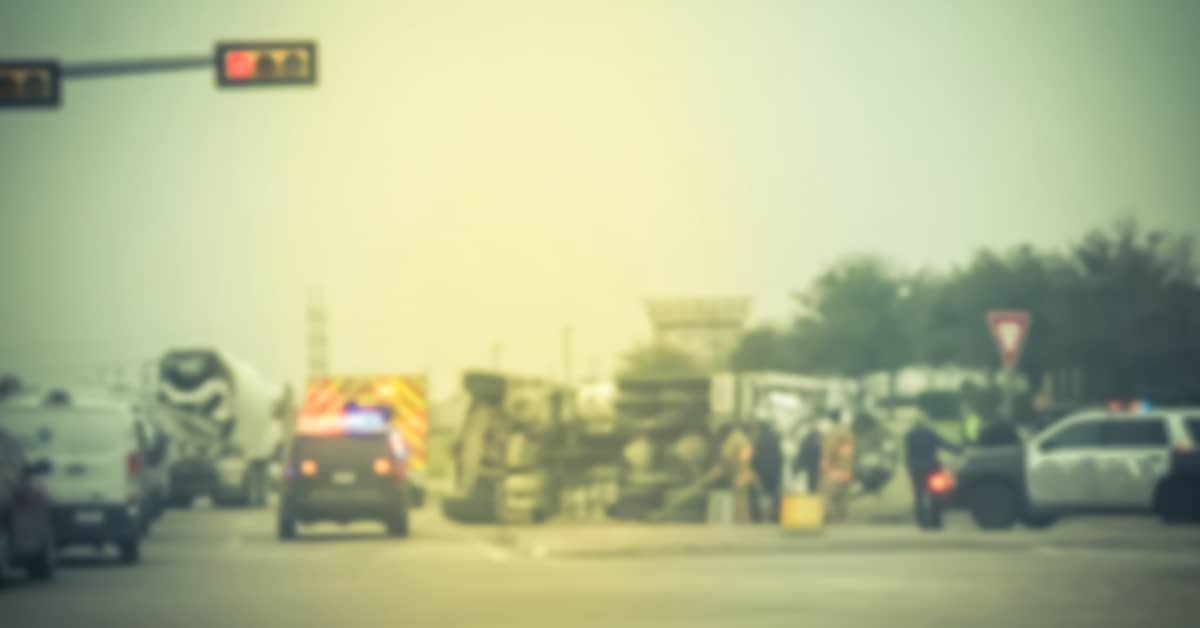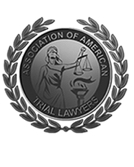
Liability in a truck accident can be complex, given the number of potential parties involved and the intricate regulations governing the trucking industry. It’s essential to have a thorough understanding of how liability is determined in these cases.
No matter whether the liability in a truck accident is clear or not, the burden of proof always lies with the injured party. They must be able to prove causation and the resulting losses. If you’ve been injured or a loved one’s life has been lost in a truck accident in Texas, it is in your best interest to consult a truck accident attorney.
Call Patrick Daniel Law today at (713) 999-6666 for a FREE case evaluation. We serve clients in Houston and throughout Texas and are dedicated to the pursuit of the compensation you deserve at the time you need it most.
Liability in a truck accident is primarily based on the legal principle of negligence. Negligence is defined as a failure to behave with the level of care that someone of ordinary prudence would have exercised under the same circumstances. To establish negligence, it must be shown that a duty of care existed, there was a breach of that duty, the breach was the actual and proximate cause of the plaintiff’s injury, and the plaintiff suffered damages.
If a party and/or entity is found liable for another party’s injuries, they bear the responsibility for the financial losses associated with those injuries. Liability is legally enforceable; therefore, establishing liability in a truck accident is a critical step toward obtaining compensation for the damages the victim incurred.
The nature of the trucking industry means there are often multiple parties that could be held liable in a truck accident. These may include:
The driver may be held liable if their negligence contributed to the accident. This could be due to factors such as speeding, fatigue, distractions, alcohol or drug impairment, or failure to adhere to traffic rules.
The trucking company is responsible for its employees and may be held liable if it negligently hired an unfit driver, failed to conduct proper background checks, did not provide adequate training, or pressured drivers to violate safety regulations.
If the owner of the truck is different from the trucking company or driver, they may be held liable for failing to maintain the vehicle properly.
If improperly loaded or overweight cargo contributes to an accident, the party responsible for loading the cargo may be held liable.
Companies responsible for maintaining and repairing the truck can be held liable if poor maintenance or faulty repairs contributed to the accident.
If a defect in the truck or one of its components caused the accident, the manufacturer of the truck or the defective part could potentially be held liable.
If the design or conditions of the roadway were responsible for the accident, the government agency or private contractor that is supposed to ensure the road is maintained may be liable.
To determine liability in a truck accident, it’s necessary to establish negligence. This process involves collecting and analyzing evidence such as:
Texas Transportation Code § 550.026 requires that you report an accident to law enforcement if there is injury, death, or property damage to the extent that a vehicle cannot be “normally and safely driven.” The law enforcement officer is then required, per § 550.062, to file a report within 10 days of the date of the accident. The accident report created by the police can provide crucial information about the accident, including potential causes and contributing factors.
If the accident occurred in Texas, you can obtain a copy of the crash report here. You will need to pay $8 for a certified copy.
The Federal Motor Carrier Safety Administration (FMCSA) requires most commercial truck drivers to use electronic logging devices (ELD) to track their hours of service. If a driver violates these regulations, their ELD can provide evidence of negligence.
Many commercial trucks have a “black box,” or electronic control module (ECM). The Event Data Recorder (EDR) is part of that device, and it records data such as speed, brake usage, and other operational details. This data can provide precious evidence about the driver’s actions before the accident.
Per the Code of Federal Regulations 49 § 396.3, a motor carrier is required to “inspect, repair, and maintain” their vehicles and keep records of that maintenance for 1 year. Records of the truck’s maintenance and inspections can reveal if the truck was not properly maintained or if there were known issues that were not addressed.
Statements from witnesses can provide valuable perspectives on the accident, potentially revealing details about the driver’s actions or the condition of the truck.
Photographs and video footage from the scene can provide visual evidence of factors such as skid marks, vehicle damage, road conditions, and more.
Accident reconstructionists analyze evidence from the scene to recreate the accident. This helps them determine the cause, how events unfolded, and identify any negligent behavior.
Even if the truck driver was negligent, the trucking company could still potentially be held liable under the principle of vicarious liability. This principle holds an employer responsible for the actions of its employees while they are acting within the course and scope of their employment. Therefore, if a driver is negligent while an employee of the trucking company and performing their job duties, the trucking company may be held liable.
In Texas, the doctrine of modified comparative negligence applies. This means that even if the plaintiff was partially at fault for the accident, they could still recover damages. Texas uses a 51% rule, meaning that as long as the plaintiff was not 51% or more responsible for the accident, they can pursue compensation for their losses. However, their recovery will be reduced by their percentage of fault.
The concept of comparative negligence can add a layer of complexity to determining liability in a truck accident. The actions of all parties involved must be examined, fault must be apportioned, and the percentage of fault must be applied to potential compensation.
Determining liability in a truck accident involves a detailed investigation and a thorough understanding of both legal principles and trucking industry regulations. Given the multiple potential parties and the complexity of the issues involved, establishing liability can be a complex task.
If you have been injured or a loved one has been lost in a truck accident, consult an experienced and motivated truck accident attorney. At this time, you should be focused on healing. The last thing you need to waste energy on is how to determine liability in a truck accident.
Contact Patrick Daniel Law today for a FREE consultation. Through Strategic, Meticulous, and Merciless litigation, we will pursue the compensation you deserve for your losses.
 Top Truck Accident Lawyer in Pasadena
Top Truck Accident Lawyer in Pasadena Best of The Best Attorneys
Best of The Best Attorneys Best of the Best Houston Chronicle 2021
Best of the Best Houston Chronicle 2021 Best Motorcycle Accident Lawyers in Houston 2021
Best Motorcycle Accident Lawyers in Houston 2021 American Association for Justice Member
American Association for Justice Member The National Trial Lawyers 2016 – (Top 40 under 40)
The National Trial Lawyers 2016 – (Top 40 under 40) Multi-Million Dollar Advocates Forum 2016 (Top Trial Lawyer)
Multi-Million Dollar Advocates Forum 2016 (Top Trial Lawyer) Million Dollar Advocates Forum 2019 (Top Trial Lawyer)
Million Dollar Advocates Forum 2019 (Top Trial Lawyer) America’s Top 100 Attorneys 2020 (High Stake Litigators)
America’s Top 100 Attorneys 2020 (High Stake Litigators) Lawyers of Distinction 2019, 2020 (Recognizing Excellence in Personal Injury)
Lawyers of Distinction 2019, 2020 (Recognizing Excellence in Personal Injury) American Institute of Personal Injury Attorneys 2020 (Top 10 Best Attorneys – Client Satisfaction)
American Institute of Personal Injury Attorneys 2020 (Top 10 Best Attorneys – Client Satisfaction) American Institute of Legal Advocates 2020 (Membership)
American Institute of Legal Advocates 2020 (Membership) Association of American Trial Lawyers 2018 - Top 100 Award recognizing excellence in personal injury law
Association of American Trial Lawyers 2018 - Top 100 Award recognizing excellence in personal injury law American Institute of Legal Professionals 2020 (Lawyer of the Year)
American Institute of Legal Professionals 2020 (Lawyer of the Year) Lead Counsel Verified Personal Injury 2020
Lead Counsel Verified Personal Injury 2020 The Houston Business Journal 2021
The Houston Business Journal 2021